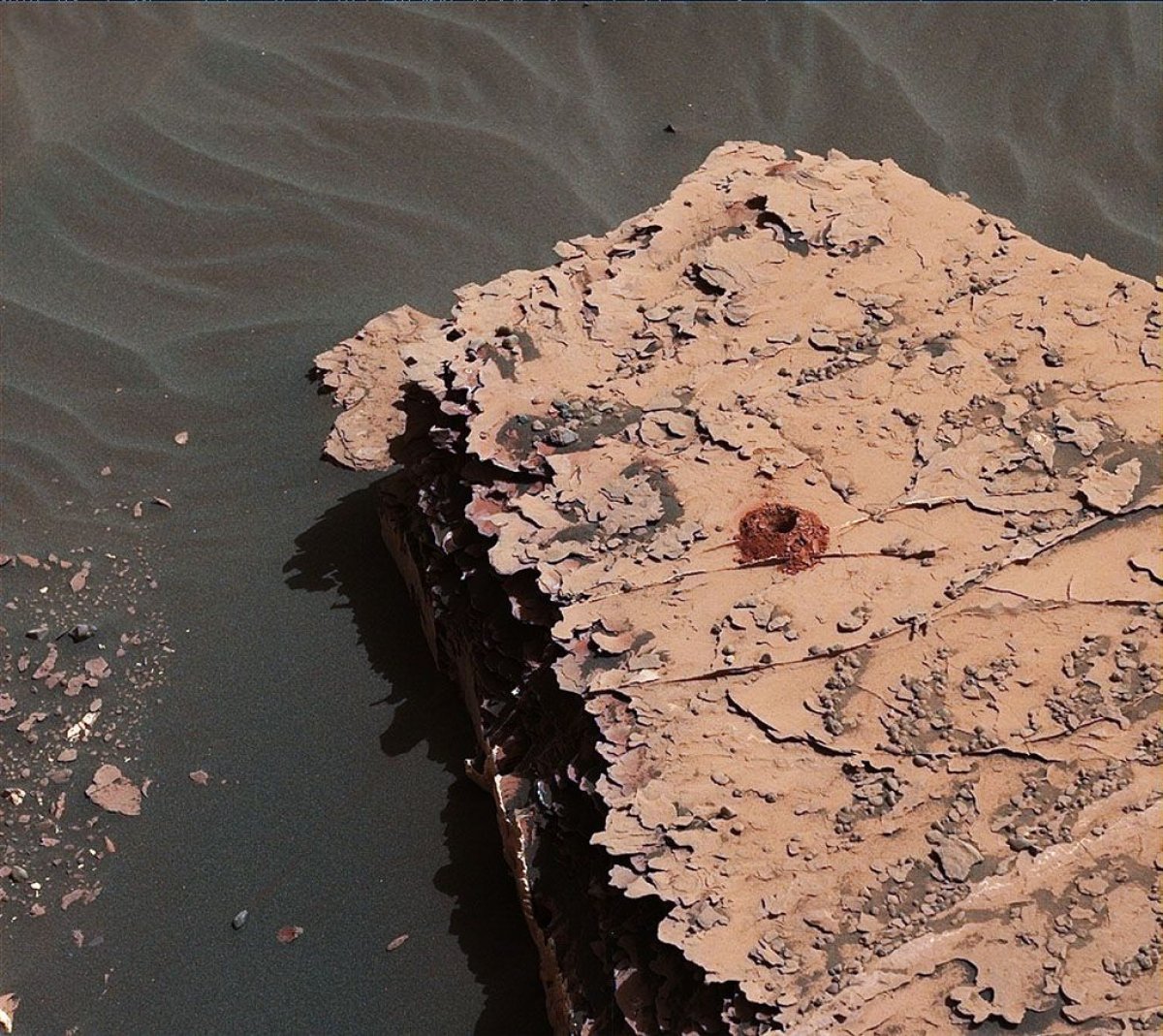It's hard to tackle even the most basic odd jobs when your tools break and the nearest hardware store is 60 million miles away. And that's been precisely the challenge NASA's Curiosity rover has faced on Mars since December 2016, when the drill the robot uses to study rocks broke.
NASA engineers spent the next year and a half figuring out a workaround that would let the rover keep doing its geology despite the busted part—and on Sunday, Curiosity successfully drilled its first new hole.
That hole, about two inches deep and just over half an inch wide, cracked into a rock Curiosity's guides call Duluth. The rover actually had to backtrack its steps to take the sample.
Scientists decided it was worth the effort because the area, called Vera Rubin Ridge, seems to be made of clay-rich material. That's a rock type that Curiosity hadn't drilled before during its explorations of Mount Sharp.
"Every layer of Mount Sharp reveals a chapter in Mars' history," Ashwin Vasavada, a planetary scientist working on Curiosity at NASA's Jet Propulsion Laboratory, said in a press release. "Without the drill, our first pass through this layer was like skimming the chapter. Now we get a chance to read it in detail."
The rover has always relied on a drill to pulverize rocks into powder, which it can then analyze using x-rays to identify what minerals are present. The original drilling system was carefully designed so that the rover could detach and replace a stuck drill bit.

But the big problem came in December 2016, when the rover's drill stopped extending properly. Now, thanks to NASA's work-around, instead of extending and retracting the tip of the drill, the entire mechanism is permanently extended. It's a little less stable than the original configuration, but as Curiosity proved on Sunday, it gets the job done.
The robot soon took a picture of its accomplishment to send home to scientists, who have hopefully posted it on the office kitchen's refrigerator door like the proud parents they are.
Uncommon Knowledge
Newsweek is committed to challenging conventional wisdom and finding connections in the search for common ground.
Newsweek is committed to challenging conventional wisdom and finding connections in the search for common ground.
About the writer
Meghan Bartels is a science journalist based in New York City who covers the science happening on the surface of ... Read more
To read how Newsweek uses AI as a newsroom tool, Click here.








